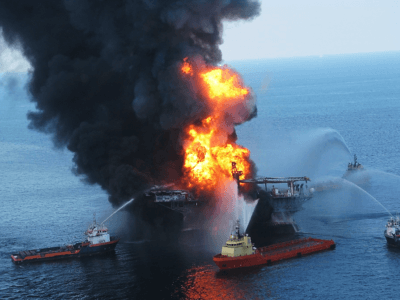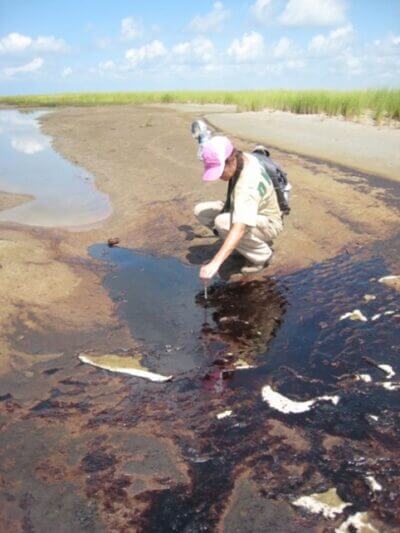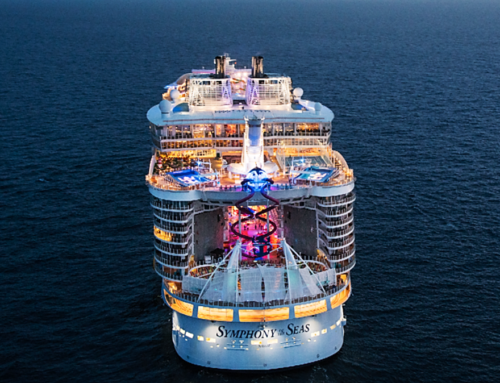Hidden Victims: BP’s Broken Settlement and the Aftermath of Deepwater Horizon 14 Years Later
 When a fiery explosion ripped through BP’s drilling rig the Deepwater Horizon on April 20, 2010, it wasn’t just the rig that was destroyed. It was the livelihoods, health, and the lives of tens of thousands of people who were thrust into the management and cleanup efforts.
When a fiery explosion ripped through BP’s drilling rig the Deepwater Horizon on April 20, 2010, it wasn’t just the rig that was destroyed. It was the livelihoods, health, and the lives of tens of thousands of people who were thrust into the management and cleanup efforts.
As reported in numerous news outlets, more than 134 million gallons of crude oil spewed into the Gulf of Mexico over the next three months, creating an unprecedented environmental catastrophe. In the wake of this disaster, BP agreed to medical claims settlement in 2012 to compensate the workers who had been exposed to toxic chemicals while battling the oil slicks and rescuing oil-soaked wildlife.
However, what followed was not a tale of redemption, but a pattern of disappointment.
As a result that settlement, BP has paid ill workers and coastal residents a tiny portion, about $67 million, of the billions the company has spent on restitution for economic and environmental damage. About 79% of the claimants received no more than $1,300 each.
 Many workers claiming illnesses which later appeared as a result of the spill have been forced to sue individually, with even less success. Nearly all of the roughly 4,800 lawsuits seeking compensation for health problems were dismissed.
Many workers claiming illnesses which later appeared as a result of the spill have been forced to sue individually, with even less success. Nearly all of the roughly 4,800 lawsuits seeking compensation for health problems were dismissed.
A major part of the issue is the wording of BP’s medical claims settlement. The agreement was meant to provide “fair compensation” to workers experiencing health issues due to their exposure to crude oil and Corexit, the chemical dispersant used in cleanup efforts. However, a single word change in the language of the settlement was made in 2014, from “manifests” to “diagnosed,” effectively shutting the door on many medical claims. BP used the change to argue no medical issue “diagnosed” after the April 16th, 2012 deadline could receive an award. This meant two people could have the same illness, but the one who recieved a diagnosis before the deadline could file a claim for compensation, while the other would need to file a suit instead.
Another issue is the high standard of proof connecting the various diseases to the spill exposure as required by most of the federal judges hearing these cases.
Despite the evidence linking effects such as chronic respiratory issues, immune diseases, and other disabilities to chemical exposure during the spill’s cleanup, these challenges caused many of these victims to find themselves caught in a complicated web of laws, regulations, and difficult-to-meet proof requirements.
Despite these challenges, many law firms, such as us here at Herd Law Firm have been working hard for these victims to help prove the link between these chemical exposure and illnesses. We believe that until those responsible are held to account and the victims receive the recognition and support they deserve, the devastating effects of Deepwater Horizon will continue to cast a long shadow over the victims and residents of the Gulf of Mexico.
5/9/2024
Image Credit: NOAA (National Oceanic and Atmospheric Administration)










